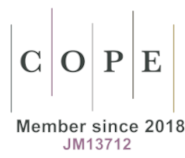Założenia polityczno-ekonomiczne dotyczące uchylenia systemu kafala w Arabii Saudyjskiej
DOI:
https://doi.org/10.18778/1641-4233.29.05Słowa kluczowe:
zniesienie systemu kafala, Wizja w 2030 r., Wizja Arabii Saudyjskiej w 2030 r., reforma systemu kafala w Arabii Saudyjskiej, ekonomia polityczna systemu kafala, polityka migracyjna, migracja zarobkowa, ekonomiczne założenia polityki migracyjnej, system kafalaAbstrakt
Arabia Saudyjska, państwo utrzymujące się z dochodów pasywnych z wydobycia ropy naftowej, która jest jego bogactwem naturalnym, przyjmuje rzesze zagranicznych pracowników, objętych kontrowersyjnym systemem kafala. Niedawno Arabia Saudyjska ogłosiła zniesienie tego systemu ze skutkiem w marcu 2021 r., jednak z wyłączeniem pracowników domowych. Poczynione spostrzeżenia dają podstawy do przypuszczeń, że decyzja władz o zniesieniu tego systemu podyktowana była względami polityczno-ekonomicznymi, niezależnie od pobudek humanitarnych. Jest to kolejne przedsięwzięcie obecnego reżimu, obliczone na zmniejszenie zależności od ropy naftowej poprzez dywersyfikację gospodarki. Następca tronu, książę Mohammad Bin Salman, przedstawił szeroko zakrojony plan reform – „Wizja Arabii Saudyjskiej w 2030 r.”, którego celem jest pobudzenie bezpośrednich inwestycji zagranicznych oraz rozwój sektora publicznego i usługowego, wymagający wykwalifikowanych pracowników i ekspertów do zarządzania gospodarką, którzy powinni funkcjonować poza systemem kafala. Przedmiotem niniejszego artykułu są ekonomiczne założenia polityki migracyjnej w ramach analizy polityczno-ekonomicznych aspektów uchylenia systemu kafala w Arabii Saudyjskiej przez pryzmat obecnej transformacji i uchwalenia zniesienia systemu kafala.
Pobrania
Bibliografia
Allinson, T. “Saudi ‘Kafala’ Labor Reforms Leave Devil In The Detail”. Deutsche Welle 11.07.2020. Web. 10.08.2021. https://www.dw.com/en/saudi-kafala-labor-reforms-leave-devil-in-the-detail/a-55511689
Zobacz w Google Scholar
Al-Sulayman, F. “State Business Relations And The New Economic Agenda In Saudi Arabia”. Rice University’s Baker Institute for Public Policy, Issue Brief (2018): 1–5.
Zobacz w Google Scholar
Azhari, A. “The Kafāla ‘Sponsorship’ System In Saudi Arabia: A Critical Analysis From The Perspective Of International Human Rights And Islamic Law”. The SOAS Journal Of Postgraduate Research, 10 (2017): 61–80. https://doi.org/10.25501/SOAS.00024680
Zobacz w Google Scholar
Begum, R. “What Will It Take For Saudi Arabia To Abolish Abusive Sponsorship System?”. Human Rights Watch 30.10.2020. Web 20.08.2021. https://www.hrw.org/news/2020/10/30/what-will-it-take-saudi-arabia-abolish-abusive-sponsorship-system
Zobacz w Google Scholar
Damir-Geilsdorf, S. “Contract Labour And Debt Bondage In The Arab Gulf States. Policies And Practices Within The Kafala System”. In: Bonded Labour: Global And Comparative Perspectives (18th–21st Century). Eds. S. Damir-Geilsdorf, U. Lindner, G. Müller, O. Tappe, M. Zeuske. Bielefeld: Transcript-Verlag, 2016: 163–191. https://doi.org/10.1515/9783839437339-008
Zobacz w Google Scholar
DOI: https://doi.org/10.1515/9783839437339-008
“Domestic Worker, 4 Other Professions Not Included In Labor Reforms Initiative”. Saudi Gazette 5.11.2020. Web. 20.08.2021. https://saudigazette.com.sa/article/599964/SAUDI-ARABIA/Domestic-worker-4-other-professions-not-included-in-labor-reforms-initiative
Zobacz w Google Scholar
Facchini, G., Mayda, A.M. “The Political Economy Of Immigration Policy”. UNDP 2009: 1–63. Web. 20.08.2021. http://hdr.undp.org/sites/default/files/hdrp_2009_03.pdf
Zobacz w Google Scholar
Feierstein, J. “Saudi Arabia: Liberalization, Not Democratization”. Afsa.Org 2018. Web. 20.08.2021. https://www.afsa.org/saudi-arabia-liberalization-not-democratization
Zobacz w Google Scholar
Freeman, G.P., Kessler, A.K. “Political Economy And Migration Policy”. Journal Of Ethnic And Migration Studies, 34.4 (2008): 655–678. https://doi.org/10.1080/13691830801961670
Zobacz w Google Scholar
DOI: https://doi.org/10.1080/13691830801961670
Hillman, A.L. “The Political Economy Of Migration Policy”. Migration: A Challenge For Europe. Ed. H. Siebert. Tübingen: J.C.B. Mohr Paul Siebeck, 1994: 263–282. https://www.researchgate.net/publication/275645376
Zobacz w Google Scholar
Khan, A., Harroff-Tavel, H. “Reforming The Kafala: Challenges And Opportunities In Moving Forward”. Asian And Pacific Migration Journal, 20.3–4 (2011): 293–313. https://doi.org/10.1177/011719681102000303
Zobacz w Google Scholar
DOI: https://doi.org/10.1177/011719681102000303
Khashan, H. “Saudi Arabia’s Flawed ‘Vision 2030’”. Middle East Quarterly, 24.1 (2017): 1–8, https://www.meforum.org/middle-east-quarterly/pdfs/6397.pdf
Zobacz w Google Scholar
“Ministry Of Human Resources And Social Development Launches Labor Reforms For Private Sector Workers”. Saudi Press Agency 4.11.2020. Web. 20.08.2021. https://www.spa.gov.sa/viewfullstory.php?lang=en&newsid=2153476#2153476
Zobacz w Google Scholar
Moshashai, D. et al. “Saudi Arabia Plans For Its Economic Future: Vision 2030, The National Transformation Plan And Saudi Fiscal Reform”. British Journal Of Middle Eastern Studies, 47.3 (2018): 381–401. https://doi.org/10.1080/13530194.2018.1500269
Zobacz w Google Scholar
DOI: https://doi.org/10.1080/13530194.2018.1500269
Nereim, V. “Saudi Arabia Loosens Controversial Curbs On Foreign Workers”. Bloomberg.Com 4.11.2020. Web. 20.08.2021. https://www.bloomberg.com/news/articles/2020-11-04/saudi-arabia-eases-controversial-restrictions-on-foreign-workers?sref=MmPRe670
Zobacz w Google Scholar
Rapier, R. “How Much Oil Does Saudi Arabia Really Have?”. Forbes 14.02.2019. Web. 20.08.2021. https://www.forbes.com/sites/rrapier/2019/02/14/how-much-oil-does-saudi-arabia-have/?sh=23fd4cb07b33
Zobacz w Google Scholar
Robinson, K. “What Is The Kafala System?”. Cfr.Org 2021. Web. 12.12.2021. https://www.cfr.org/backgrounder/what-kafala-system
Zobacz w Google Scholar
Rudolph, Ch. “Security And The Political Economy Of International Migration”. American Political Science Review, 97.4 (2003): 603–620. https://doi.org/10.1017/s000305540300090x
Zobacz w Google Scholar
DOI: https://doi.org/10.1017/S000305540300090X
“Saudi Arabia Eases ‘Kafala’ System Restrictions On Migrant Workers”. BBC 4.11.2020. Web. 10.08.2021. https://www.bbc.com/news/world-middle-east-54813515
Zobacz w Google Scholar
“Saudi Arabia: Domestic Workers Face Harsh Abuses”. Human Rights Watch 8.07.2008. Web. 20.08.2021. https://www.hrw.org/news/2008/07/08/saudi-arabia-domestic-workers-face-harsh-abuses
Zobacz w Google Scholar
“Saudi Arabia: Labor Reforms Insufficient”. Human Rights Watch 25.03.2021. Web. 20.08.2021. http://www.hrw.org/news/2021/03/25/saudi-arabia-labor-reforms-insufficient
Zobacz w Google Scholar
“Saudi Arabia: Pre-Crisis GDP Level Will Be Reached in 2022”. Allianz Trade. Web. 20.08.2021. http://www.allianz-trade.com/en_US/resources/country-reports/saudi-arabia.html#:~:text=Structural%20weaknesses,further%2070%20years%20or%20so
Zobacz w Google Scholar
Pobrania
Opublikowane
Wersje
- 2024-02-20 - (2)
- 2024-01-16 - (1)
Jak cytować
Numer
Dział
Licencja

Utwór dostępny jest na licencji Creative Commons Uznanie autorstwa – Użycie niekomercyjne – Bez utworów zależnych 4.0 Międzynarodowe.

















